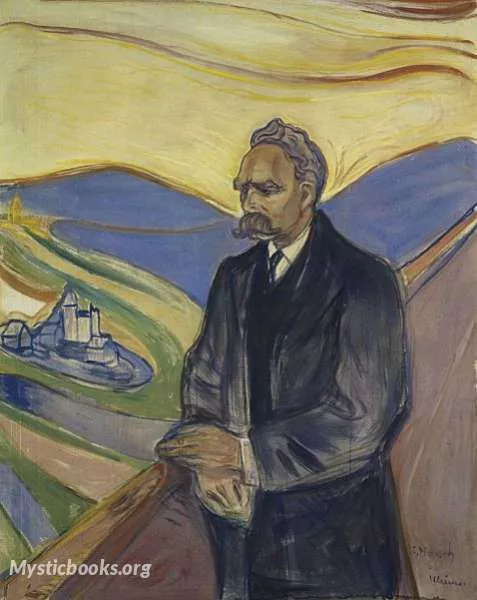
Timeline
Title
Country/Nationality
Friedrich Nietzsche
Nietzsche's writing spans philosophical polemics, poetry, cultural criticism, and fiction while displaying a fondness for aphorism and irony. Prominent elements of his philosophy include his radical critique of truth in favor of perspectivism; a genealogical critique of religion and Christian morality and related theory of master–slave morality; the aesthetic affirmation of existence in response to the "death of God" and the profound crisis of nihilism; the notion of Apollonian and Dionysian forces; and a characterization of the human subject as the expression of competing wills, collectively understood as the will to power.
After his death, his sister Elisabeth became the curator and editor of Nietzsche's manuscripts. She edited his unpublished writings to fit her German ultranationalist ideology while often contradicting or obfuscating Nietzsche's stated opinions, which were explicitly opposed to antisemitism and nationalism.
The statement "God is dead," occurring in several of Nietzsche's works has become one of his best-known remarks. On the basis of it, many commentators] regard Nietzsche as an atheist; others (such as Kaufmann) suggest that this statement reflects a more subtle understanding of divinity.
A basic element in Nietzsche's philosophical outlook is the "will to power" (der Wille zur Macht), which he maintained provides a basis for understanding human behavior—more so than competing explanations, such as the ones based on pressure for adaptation or survival.
Books by Friedrich Nietzsche

Beyond Good And Evil
First published in 1886 at Nietzsche’s own expense, the book was not initially considered important. In it, Nietzsche denounced what he considered to be the moral vacuity of 19th century thinkers. He attacked philosophers for what he considered to be...
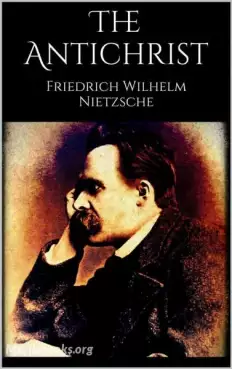
The Antichrist
Save for his raucous, rhapsodical autobiography, Ecce Homo, The Antichrist is the last thing that Nietzsche ever wrote, and so it may be accepted as a statement of some of his most salient ideas in their final form. Of all Nietzsche’s books, The Anti...

The Twilight of the Idols or How to Philosophise with the Hammer
Twilight of the Idols, or, How to Philosophize with a Hammer is a book by Friedrich Nietzsche, written in 1888, and published in 1889. Twilight of the Idols was written in just over a week, between 26 August and 3 September 1888, while Nietzsche wa...

Thus Spake Zarathustra: A Book for All and None
Thus Spoke Zarathustra: A Book for All and None is a philosophical novel by German philosopher Friedrich Nietzsche, composed in four parts written and published between 1883 and 1885. Much of the work deals with ideas such as the "eternal recurrence...

The Joyful Wisdom, or The Gay Science
The Gay Science sometimes translated as The Joyful Wisdom or The Joyous Science, is a book by Friedrich Nietzsche published in 1882, and followed by a second edition in 1887 after the completion of Thus Spoke Zarathustra and Beyond Good and Evil. Thi...
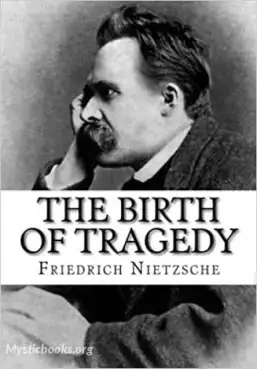
The Birth of Tragedy
The Birth of Tragedy from the Spirit of is an 1872 work of dramatic theory by the German philosopher Friedrich Nietzsche. It was reissued in 1886 as The Birth of Tragedy, Or: Hellenism and Pessimism. The later edition contained a prefatory essay, "An...
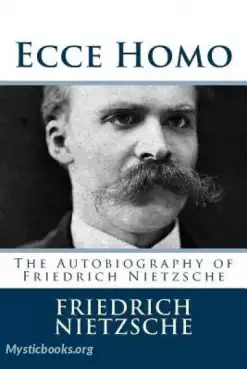
Ecce Homo
Ecce Homo: How One Becomes What One Is is the last original book written by philosopher Friedrich Nietzsche before his death in 1900. It was written in 1888 and was not published until 1908.

Human, All Too Human: A Book for Free Spirits
Human, All Too Human: A Book for Free Spirits is a book by 19th-century philosopher Friedrich Nietzsche, originally published in 1878. A second part, Assorted Opinions and Maxims (Vermischte Meinungen und Sprüche), was published in 1879, and a third...

The Genealogy of Morals
On the Genealogy of Morality: A Polemic is an 1887 book by German philosopher Friedrich Nietzsche. It consists of a preface and three interrelated treatises ('Abhandlungen' in German) that expand and follow through on concepts Nietzsche sketched out...

Early Greek Philosophy and Other Essays
The essays contained in this volume treat of various subjects. With the exception of perhaps one we must consider all these papers as fragments. Written during the early Seventies, and intended mostly as prefaces, they are extremely interesting, sinc...
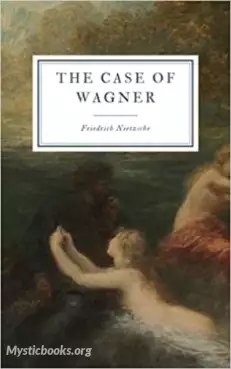
The Case of Wagner
The book is a critique of Richard Wagner and the announcement of Nietzsche's rupture with the German artist, who had involved himself too much, in Nietzsche's eyes, in the Völkisch movement and antisemitism. His music is no longer represented as a po...

On the Future of Our Educational Institutions
Nietzsche gives a series of lectures in Bale, Germany on the subject of German educational institutions, and what the best way forward.

Tolle Mensch
“Der tolle Mensch” ist der Aphorismus 125 aus dem dritten Buch der “Fröhlichen Wissenschaft” und befaßt sich mit dem Thema “Gott ist tot”. Der stilistisch dichte Aphorismus enthält Anspielungen an klassische Werke der Philosophie und Tragödie. Dieser...

Götzendämmerung
Diese kleine Schrift ist eine grosse Kriegserklärung; und was das Aushorchen von Götzen anbetrifft, so sind es dies Mal keine Zeitgötzen, sondern ewige Götzen, an die hier mit dem Hammer wie mit einer Stimmgabel gerührt wird, - es giebt überhaupt kei...

Twilight of the Idols
Of The Twilight of the Idols, Nietzsche says in Ecce Homo: “If anyone should desire to obtain a rapid sketch of how everything before my time was standing on its head, he should begin reading me in this book. That which is called ‘Idols’ on the title...
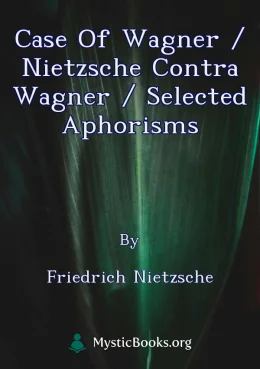
Case of Wagner / Nietzsche Contra Wagner / Selected Aphorisms
A collection of three of Nietzsche's writings concerning the music of Wagner. In particular, he relates Wagner's music as degenerate, unrefined and unintelligent and relates it to a gradually degenerating German culture and society. The translator pr...
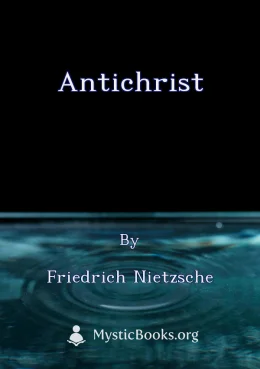
Antichrist
In "Antichrist", Nietzsche launches a scathing critique of Christianity and its influence on Western culture. He argues that the Christian moral system, with its emphasis on humility and self-denial, is ultimately destructive and disempowering. He ch...

悦ばしき知識 (Yorokobashiki Chishiki)
“悦ばしき知識 (Yorokobashiki Chishiki)” is a collection of Nietzsche’s writings from the 1880s, known for its wide-ranging discussions on topics including truth, knowledge, morality, and the human condition. While it's not a single, cohesive argument...

Human, All Too Human: A Book For Free Spirits, Part I
Human, All Too Human is a collection of aphorisms and essays by Friedrich Nietzsche, exploring the complexities of human nature, morality, and the nature of truth. Nietzsche challenges traditional philosophical and religious beliefs, advocating for a...

Beyond Good and Evil: Prelude to a Philosophy of the Future
'Beyond Good and Evil' is a philosophical treatise by Friedrich Nietzsche, first published in 1886. In the book, Nietzsche argues that traditional morality is a product of slave morality, which values humility, meekness, and obedience. He contrasts t...

viajero y su sombra (Primera parte)
This book is a collection of 408 aphorisms and opinions by the German philosopher Friedrich Nietzsche. It covers a wide range of topics, including art, philosophy, history, science, religion, and society. Nietzsche's writing is characterized by its s...
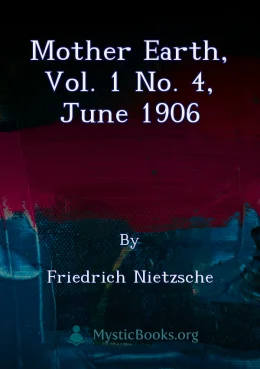
Mother Earth, Vol. 1 No. 4, June 1906
Mother Earth was an American anarchist journal that described itself as "A Monthly Magazine Devoted to Social Science and Literature". Founded in early 1906 and initially edited by Emma Goldman, an activist in the United States, it published articles...
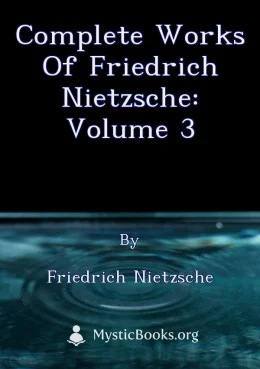
Complete Works of Friedrich Nietzsche: Volume 3
This volume of Nietzsche's collected works delves into themes of classical thought, education, and cultural critique. It features a series of essays and lectures that explore the significance of classical learning, the future of educational instituti...

Birth of Tragedy; or, Hellenism and Pessimism
In 'Birth of Tragedy', Nietzsche argues that Greek tragedy emerged from the conflict between the Apollonian and Dionysian impulses. The Apollonian represents reason, order, and clarity, while the Dionysian represents passion, chaos, and ecstasy. Niet...
Showing 1 to 24 of 25 results